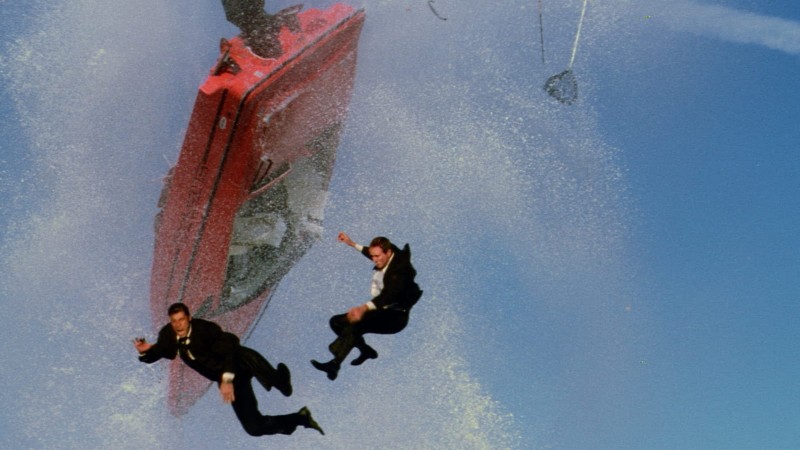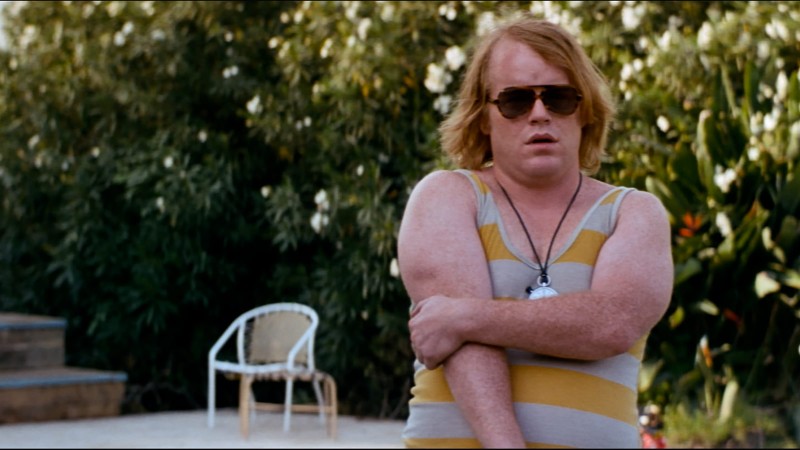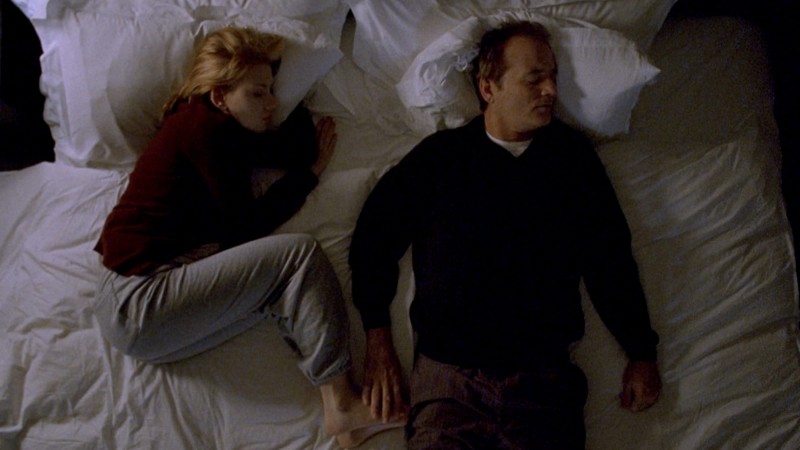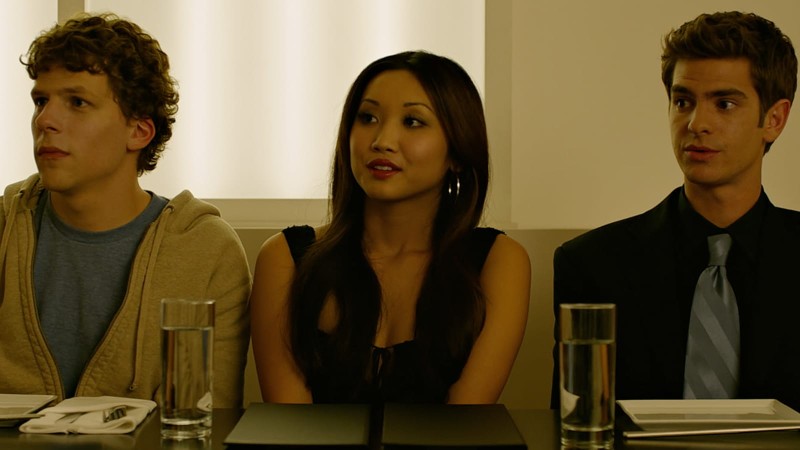The Criterion Channel’s May 2025 Lineup

The Criterion Channel’s May 2025 Lineup
This May, travel to beaches, coves, and rocky shores where danger lurks: our Coastal Thrillers collection pairs white-knuckle tension with scenic seaside vistas galore. Noir and the Blacklist explores how pulp filmmakers put America’s dark side on-screen in the face of political repression, while a retrospective dedicated to Terry Southern celebrates the screenwriter who brought a subversive counterculture POV to sixties Hollywood. There’s so much more to watch this month: early gems from Kathryn Bigelow, guest-curated picks from Spike Lee, masterpieces from twenty-first-century China’s most acclaimed director, Jem Cohen’s eclectic independent films, and a pair of radical feminist landmarks from Heiny Srour.
If you haven’t signed up yet, head to CriterionChannel.com and get a 7-day free trial.
* indicates programming available only in the U.S.
TOP STORIES

Coastal Thrillers
WATCH NOW
Sun-dappled waves and swirling ocean depths reflect psychological turmoil in these moodily atmospheric tales of seaside suspense set against rugged shorelines and restless waters. In the interplay between location and plot, films like Out of the Fog and The Ghost Writer exploit the sense of isolation and vulnerability inherent to coastal settings, while The Beach and The Breaking Point use their seascapes to conjure alternating moods of escape and claustrophobia. And in Body Heat, strikingly surrealist-tinged location shooting on Florida’s coastline underscores the sense of seductive unease. Blending creeping tension with visual beauty, these whirlpools of danger bring peril to paradise.
FEATURING: Out of the Fog (1941), The Lady from Shanghai (1947), Key Largo (1948), The Breaking Point (1950), The Long Goodbye (1973), The Deep (1977), The Fog (1980), Body Heat (1981), Copycat (1995), Wild Things (1998), The Beach (2000), Insomnia (2002), The Ghost Writer (2010), Shutter Island (2010)*
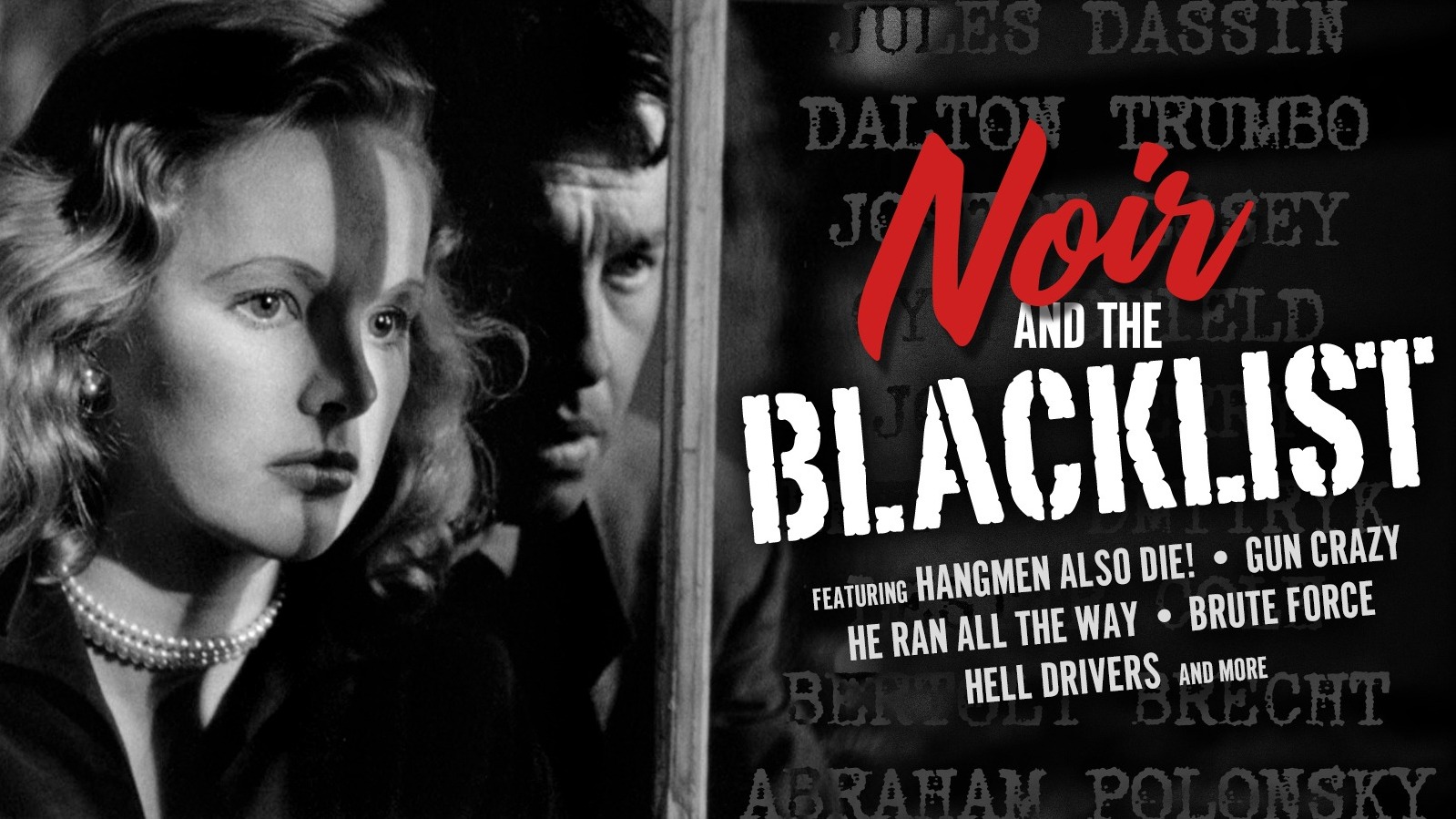
Noir and the Blacklist
WATCH NOW
With its cynical worldview and sympathy for doomed outsiders, it’s no wonder that film noir ran afoul of the Hollywood blacklist. Beginning in the 1940s, many left-leaning filmmakers found in noir the perfect vehicle for challenging the dream factory’s sunny view of American society. Campaigns like the 1947 Un-American Activities Committee sought to purge those artists from the industry, but they nevertheless exerted a powerful influence on the development of noir, often finding work abroad. Starting with antifascist films made during World War II (like the Bertolt Brecht–scripted Hangmen Also Die!) and continuing with gritty works of postwar social realism, left-wing artists—including directors Joseph Losey (The Big Night), Cy Endfield (Try and Get Me!), Edward Dmytryk (Crossfire), and Jules Dassin (Brute Force); writers Dalton Trumbo (Gun Crazy) and Lester Cole (None Shall Escape); and actors such as John Garfield (He Ran All the Way)—used thrillers and crime dramas to unearth the dark side of American society, exposing issues of bigotry, capitalist greed, inequality, and mob violence. These themes are embedded in exciting, hard-hitting crime movies—but the artists’ radical voices come through loud and clear, sounding the alarm about intolerance and injustice.
FEATURING: Hangmen Also Die! (1943), None Shall Escape (1944), Brute Force (1947), Crossfire (1947), Intruder in the Dust (1949), Obsession (1949), Thieves’ Highway (1949), Gun Crazy (1950), The Lawless (1950), Try and Get Me! (1950), The Big Night (1951), He Ran All the Way (1951), Hell Drivers (1957), Time Without Pity (1957), Odds Against Tomorrow (1959)
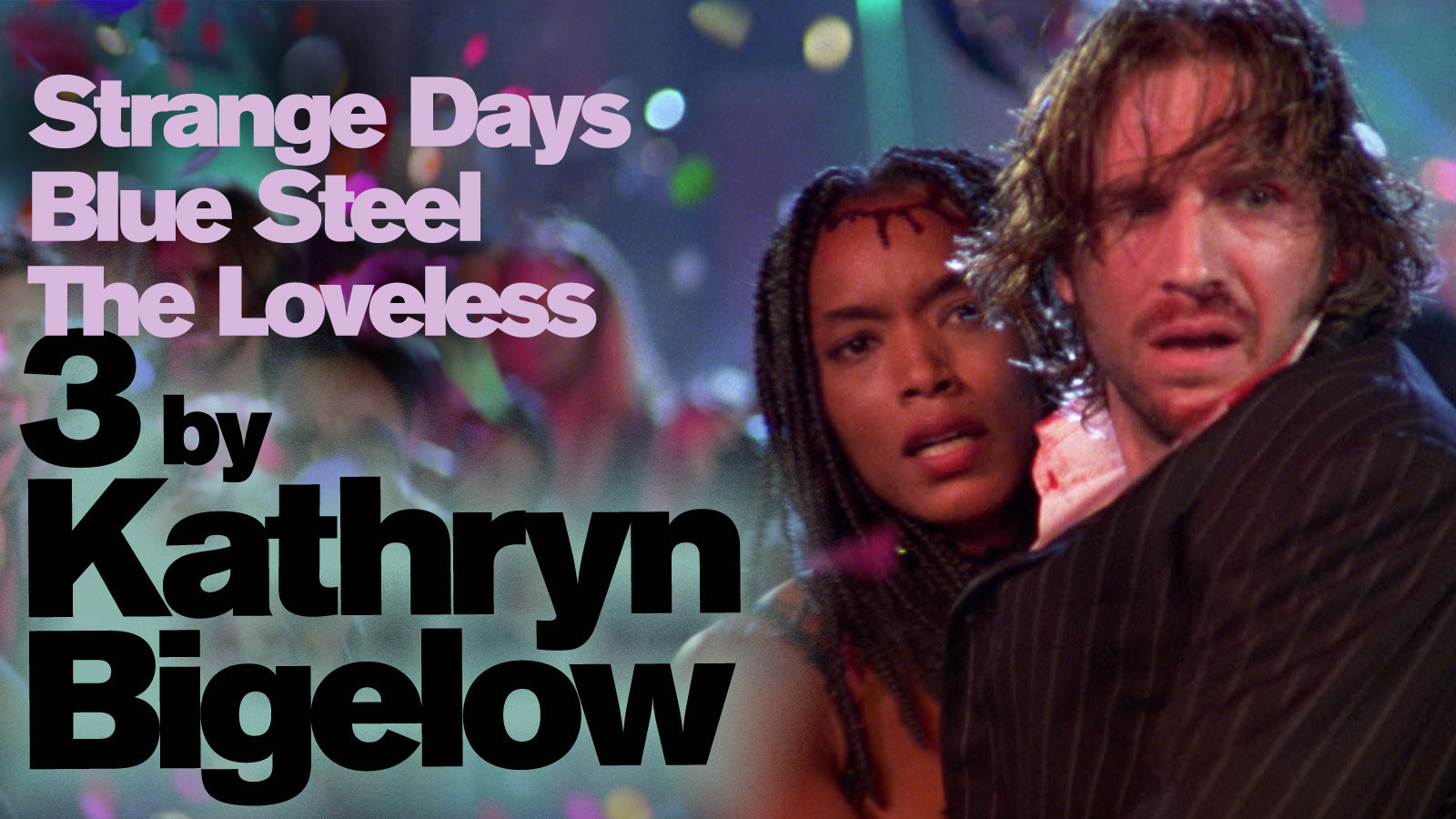
Three by Kathryn Bigelow
WATCH NOW
Kathryn Bigelow’s early films are bracing fusions of kinetic genre thrills and potent social critique, probing cultural anxieties and questions of identity with style and intelligence to burn. The Loveless, her assured directorial debut, is a reinvention of the road movie, blending existential desolation with a sui generis exploration of American masculinity, while Blue Steel, carried by a pitch-perfect performance from Jamie Lee Curtis, similarly subverts genre conventions for a sophisticated feminist take on the police procedural. And Strange Days pushes the boundaries of science fiction to dazzling effect in an exhilarating examination of technology, desire, and social entropy.
FEATURING: The Loveless (1981), Blue Steel (1990), Strange Days (1995)

Terry Southern: Hollywood’s Most Subversive Screenwriter
WATCH NOW
Featuring a new introduction by Nile Southern, Terry Southern’s son
Writer, satirist, “pornographer,” surrealist, and provocateur, Terry Southern was one of the great literary minds of his time. As a screenwriter, he brought his irreverent, gonzo sensibility to some of the defining counterculture films of the 1960s. Invited by Stanley Kubrick to assist on the screenplay for Dr. Strangelove, Southern was instrumental in transforming it from a straight thriller into a savagely satirical comedy, and the film’s success soon made him one of the most in-demand screenwriters of the decade. From cult classics like Easy Rider and Barbarella to his outrageous adaptation of his own novel The Magic Christian, starring Peter Sellers and Ringo Starr, to the ultracontroversial rarity End of the Road, Southern’s screenplays defined the wildly subversive spirit of the New Hollywood era.
FEATURING: Dr. Strangelove, or: How I Learned to Stop Worrying and Love the Bomb (1964), Barbarella (1968), Easy Rider (1969), The Magic Christian (1969)*, End of the Road (1970)

Spike Lee’s Adventures in Moviegoing
WATCH NOW
Always bold, subversive, and razor-sharp, auteur and cultural icon Spike Lee sees the complexities of life in America with a clarity like no other. In this edition of Adventures in Moviegoing, he sits down with Sheril Antonio, his colleague at New York University Tisch School of the Arts, to discuss his formative cinematic experiences—from growing up watching James Bond movies with his mother to the impressions that pioneering Black performers like Sidney Poitier, Jim Brown, and Melvin Van Peebles made on him. The films he has chosen to present, like Rome Open City, The Battle of Algiers, and Sweet Sweetback’s Baadasssss Song, crackle with the defiantly independent spirit that runs through his own work.
FEATURING: Rome Open City (1945), Rashomon (1950), On the Waterfront (1954), Black Orpheus (1959), The Battle of Algiers (1966), Sweet Sweetback’s Baadasssss Song (1971)

Directed by Jia Zhangke
WATCH NOW
Among the greatest filmmakers working today, Chinese master Jia Zhangke is the foremost cinematic chronicler of the vast changes that have transformed his country over the last half century in its transition from communism to a globalized, increasingly market-based society. Beginning his career as an underground filmmaker working without state approval, he first attracted attention for his mid-length student film Xiao Shan Going Home, which led to his revelatory feature debut Xiao Wu—the first installment in his Hometown Trilogy, followed by Platform and Unknown Pleasures, all set in his home province of Shanxi. While he transitioned to state-sanctioned filmmaking with 2004’s The World, his subsequent films—including modern masterworks like Still Life and Ash Is Purest White—remain deeply critical of China’s modernization and the disillusionment it has wrought among the country’s youth. Employing rigorously composed long takes, unblinking naturalism, and audacious narrative structures, Jia captures the ironies, ennui, and often surreal metamorphoses of a country suspended between the past and an ever-accelerating future.
FEAUTRES: Xiao Wu (1997), Platform (2000), Unknown Pleasures (2002), The World (2004), Still Life (2006)*, 24 City (2008), A Touch of Sin (2013), Mountains May Depart (2015), Ash Is Purest White (2018), Swimming Out Till the Sea Turns Blue (2020)*
SHORTS: Xiao Shan Going Home (1995), The Hedonists (2016), Revive (2017)
REDISCOVERIES AND RESTORATIONS

Dutchman
WATCH NOW
Adapted from the explosive one-act play by Amiri Baraka, this intense chamber drama remains as provocative today as it was in 1966. In an empty New York City subway car, a sexually audacious white woman named Lula (Shirley Knight, winner of the Best Actress prize at the Venice Film Festival) taunts Clay (Al Freeman Jr.), a mild-mannered Black man, with mocking flirtations and increasingly offensive race-baiting. When Lula pushes him to his breaking point, Clay’s furious response appears to provide cathartic liberation—unless it portends a far more tragic fate. Baraka’s script suffuses Dutchman with combative innuendo and allegorical dream logic, amplified by the tense, cinema-verité style of Anthony Harvey, a longtime editor who shot his directorial debut with fearless command, expertly excavating America’s deepest racial taboos.

Il grido
WATCH NOW
Years before his international breakthrough L’avventura, Michelangelo Antonioni made his first masterpiece with Il grido, a raw expression of anguish that remains one of Italian cinema’s great overlooked gems. Bridging the director’s early, neorealism-inspired work and his hallmark stories of existential rootlessness, Il grido centers on Aldo (Steve Cochran), a sugar-refinery worker in the Po valley, whose hopes of marrying his longtime lover (Alida Valli) are dashed when she declares she’s fallen in love with another man. Shocked and demoralized, Aldo leaves town with his daughter, drifting through the Po’s small villages as his prospects dwindle and his connections with other women—including an an old girlfriend (Betsy Blair), a gas-station owner (Dorian Gray), and a sex worker (Lyn Shaw)—fizzle out into alienation and despair. Boldly using environment to convey character, Il grido reveals a director in the process of discovering his artistic signature and applying it to this most personal of statements about the human condition.
CRITERION COLLECTION EDITIONS

The Runner (Amir Naderi, 1984)
Criterion Collection Edition #1211
WATCH NOW
Childhood takes on mythic dimensions in one of the defining works of postrevolutionary Iranian cinema.
SUPPLEMENTAL FEATURES: A conversation between director Amir Naderi and filmmaker Ramin Bahrani, interviews with Naderi and actor Madjid Niroumand, and a short film by Naderi.

Touchez pas au grisbi (Jacques Becker, 1954)
Criterion Collection Edition #271
WATCH NOW
Jean Gabin is at his most wearily romantic as an aging gangster reluctantly drawn back into the underworld in Jacques Becker’s elegant, understated crime-cinema touchstone.
SUPPLEMENTAL FEATURES: An excerpt from an episode of the television series Cinéastes de notre temps dedicated to Becker, interviews with actors Daniel Cauchy and Lino Ventura, and more.

Paper Moon (Peter Bogdanovich, 1973)*
Criterion Collection Edition #1241
WATCH NOW
Peter Bogdanovich lovingly recreates the world of the 1930s Dust Bowl in this captivating Depression-era road movie, a silver-screen dream of near-flawless warmth and lyricism.
SUPPLEMENTAL FEATURES: Audio commentary and an introduction by Bogdanovich, a three-part making-of documentary, excerpts from an episode of The Tonight Show Starring Johnny Carson featuring Bogdanovich and actors Ryan and Tatum O’Neal, and more.

Godzilla vs. Biollante (Kazuki Omori, 1989)
Criterion Collection Edition #1254
WATCH NOW
Godzilla faces off against a memorably bizarre mutant plant in this delirious high point in the ever-evolving mythology of the King of the Monsters.
SUPPLEMENTAL FEATURES: Audio commentary by film historian Samm Deighan, a making-of program, deleted special effects, and more.

A Woman of Paris (Charles Chaplin, 1923)
Criterion Collection Edition #1253
WATCH NOW
Remarkable for its psychological nuance and its boldly modern perspective on an independent woman’s search for fulfillment, Charlie Chaplin’s long-overlooked silent masterpiece is a revelation.
SUPPLEMENTAL FEATURES: An introduction by Chaplin scholar David Robinson, a video essay by Chaplin biographer Jeffrey Vance, a program featuring interviews with actor Liv Ullmann and filmmaker Michael Powell, and more.
DIRECTOR SPOTLIGHTS

Directed by Jem Cohen
WATCH NOW
Featuring a new interview with Cohen, part of Criterion’s Meet the Filmmakers series
A true hero of DIY cinema, Jem Cohen has been pursuing his own brand of defiantly independent artistry for more than four decades across films of many shapes and sizes, including city symphonies, collaborations with musicians, artist portraits, and semiscripted features. A poetic chronicler of urban landscapes and artists who share his outsider spirit, Cohen captures people and places in many formats, from the dreamy textures of Super 8, 16 mm, and lo-fi video to 4K digital. Whether training his uniquely off-kilter gaze on legendary underground musicians (Benjamin Smoke, Instrument, Lucky Three) or the modern cityscapes that shape our lives (Chain, Museum Hours), Cohen opens our eyes to new ways of experiencing the world around us.
FEATURES: Instrument (1999), Benjamin Smoke (2000), Chain (2004), Museum Hours (2012), Counting (2015)
SHORTS: Lost Book Found (1996), Lucky Three (1997), Little Flags (2000), Nice Evening, Transmission Down (2001), NYC Weights and Measures (2005), Free (2007), Long for the City (2008), The Passage Clock (for Walter Benjamin) (2008), Anne Truitt, Working (2009), Crossing Paths with Luce Vigo (2010), Birth of a Nation (2017), Vox Populi (2018), Makeshift (for Mekas) (2019), Tree Song (2019), Opened Ending (2020), Ballad of Philip Guston (2022), Aerie (2024)

Tim Blake Nelson Directs
WATCH NOW
Featuring a new interview with Nelson, part of Criterion’s Meet the Filmmakers series
Widely recognized for his prolific acting career, Tim Blake Nelson has also pursued an impressive parallel path as a director, often working from his own screenplays. Blending narrative depth and raw emotion, his films vary in style and subject—from the haunting rural tragedy Eye of God (streaming for the first time exclusively on the Criterion Channel) to the soul-shaking Holocaust drama The Grey Zone to the offbeat comic thriller Leaves of Grass—but they are connected by Nelson’s ability to draw riveting performances from his actors and his commitment to exploring the darkest, most complicated realms of the human experience.
FEATURING: Eye of God (1997), O (2001)*, The Grey Zone (2001)*, Leaves of Grass (2009)*, Anesthesia (2016)

Two Revolutionary Films by Heiny Srour
WATCH NOW
Spotlighting the role of women in Arab revolutionary movements, the extraordinary films of Lebanese director Heiny Srour are long overdue for rediscovery. For The Hour of Liberation Has Arrived, Srour weathered the dangers of an active conflict zone to document an Omani anticolonialist uprising in which women were instrumental. And in her singular, formally free-flowing feature Leila and the Wolves, Srour journeys through the Lebanese and Palestinian liberation movements of the twentieth century to show the strength and centrality of women in the key political struggles of their time.
FEATURING: The Hour of Liberation Has Arrived (1974), Leila and the Wolves (1984)
ACTOR SPOTLIGHTS

Three Starring Joan Chen
WATCH NOW
Throughout her multifaceted career, Joan Chen has continually proven herself a master of her craft, effortlessly spanning cultures and bridging worlds. First discovered in her teens in China during the seventies, she broke through to international audiences with her performance in Bernardo Bertolucci’s epic Oscar winner The Last Emperor. In parallel to her directing career, Chen has continued acting tirelessly in English- and Chinese-language roles in both independent and studio projects—from the beloved lesbian romantic comedy Saving Face to Jia Zhangke’s audacious fiction-documentary hybrid 24 City—employing her mesmerizing presence to unforgettable effect no matter the context.
FEATURING: The Last Emperor (1987), Saving Face (2004)*, 24 City (2008)
DOCUMENTARIES

Turn in the Wound
WATCH NOW
Abel Ferrara’s bold personal response to the war in Ukraine blends harrowing battlefield footage; powerful interviews with soldiers, civilians, and president Volodymyr Zelensky; and incantatory spoken-word performance art by punk priestess Patti Smith.

Workingman’s Death
WATCH NOW
Michael Glawogger’s startling, unflinching look at some of the world’s most dangerous jobs is an eye-opening confrontation with the kind of backbreaking, life-threatening labor that is often rendered invisible.

Gerhard Richter Painting
WATCH NOW
A sublime work of art in its own right, this beautifully shot, endlessly revealing documentary offers unprecedented insight into the life and work of one of the greatest artists of our time.
AMERICAN INDEPENDENTS

Joonam
WATCH NOW
Director Sierra Urich’s deep dive into her own family history is a tender, sometimes disarmingly funny portrait of three generations of women and their complex relationship to an Iran of the past.
TWENTY-FIRST-CENTURY CINEMA

Hero
WATCH NOW
A trio of China’s leading women filmmakers—Sylvia Chang, Joan Chen, and Li Shaohong—join forces for this three-part anthology about women navigating a new world of uncertainty amid the onset of the COVID-19 pandemic.
SHORT FILMS

August Visitor
WATCH NOW
When her widowed mother has a male friend over for dinner, an observant Nigerian American teenager acts out, setting up a clash that ultimately leads her to a deeper understanding of her mother. Ifeyinwa Arinze’s beautifully observed slice of diaspora life is a full sensory experience, in which food, fabrics, and the smallest of gestures all come together to tell a poignant story of family and culture.
NEW ADDITIONS TO PREVIOUS PROGRAMS

Premiering May 1 in Directed by Michael Mann: The Keep
WATCH NOW
Nazi invaders unwittingly unleash a sinister presence lurking within the walls of an ancient fortress in Michael Mann’s infamous second feature, a darkly ravishing triumph of trance-state mood and visuals.
